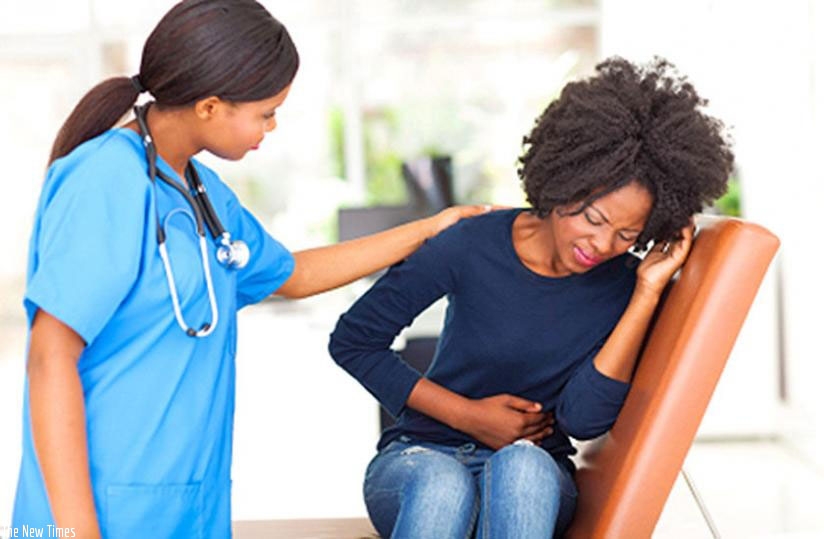
9 Factors That May Increase Your Chances Of Getting Cervical Cancer
- Anu
- January 30, 2022
- Health
- cervical cancer 2022, cervical cancer awareness month, cervical cancer causes, cervical cancer hpv, cervical cancer risk factors
- 0 Comments
 Cancer is the result of the uncontrolled division and growth of abnormal cells. Most of the cells in our body have a set lifespan, and, when they die, the body generates new cells to replace them.
Cancer is the result of the uncontrolled division and growth of abnormal cells. Most of the cells in our body have a set lifespan, and, when they die, the body generates new cells to replace them.
Anything that increases your risk of getting a disease is called a risk factor. Different cancers have different risk factors.
A risk factor is anything that increases your chance of getting a disease such as cervical cancer. But having a risk factor, or even several does not mean that you will get the disease.
Knowing the risk factors helps you know the things you can change or avoid. However, it is still important to know about risk factors that cannot be changed, because it’s even more important for women who have these factors to get regular screening tests to find cervical cancer early.
January is marked annually as Cervical Cancer Awareness Month and it provides an opportunity to talk about the disease.
Here are some risk factors that may increase your chances of getting cervical cancer.
1. Human papillomavirus (HPV)
Infection by the human papillomavirus (HPV) is the major risk factor for cervical cancer.
HPV is a group of more than 150 related viruses. Around 12 types of HPV are considered high risk for cancer of the cervix and two of these types (HPV 16 and HPV 18) cause about 7 out of 10 (70%) cervical cancer cases.
Some of them cause a type of growth called papillomas, which are more commonly known as warts.
Most are harmless while others cause changes that can develop into cancer.
As well as cervical cancer, HPV can cause anal, vaginal, vulval, penile and some types of mouth and throat cancers. HPV can be passed on through close skin-to-skin contact, usually during sexual activity.
2. Sexual history
Women who have had many sexual partners generally have a higher risk of HPV infection.
Also becoming sexually active at a young age (especially younger than 18 years old) and having a partner who is considered high risk (someone with HPV infection or who has many sexual partners) also increases the chances of exposure to HPV.
3. Use of contraceptives & birth control pills
There is evidence that taking oral contraceptives (OCs) for a long time increases the risk of cancer of the cervix as 1 in every 10 cases of cervical cancer is linked to taking the contraceptive pill.
Taking the pill for more than 5 years increases the risk of cervical cancer. The increased risk begins to drop as soon as you stop taking it. After 10 years the risk is the same as if you had never taken it.
4. Smoking
Women who smoke are about twice as likely as those who don’t smoke to get cervical cancer. Tobacco by-products have been found in the cervical mucus of women who smoke. Research shows that these substances damage the DNA of cervix cells and may contribute to the development of cervical cancer. Smoking also makes the immune system less effective in fighting HPV infections.
READ: Every Woman Should Know These 7 Warning Signs And Symptoms Of Cervical Cancer
5. Weakened immune system
The risk of cervical cancer is higher in those with HIV or AIDS, and people who have undergone a transplant, leading to the use of immunosuppressive medications.
6. Giving birth at an early age
Women who were younger than 20 years when they had their first full-term pregnancy are more likely to get cervical cancer later in life than women who waited to get pregnant until they were 25 years or older.
7. Family history
Cervical cancer may run in some families. If your mother or sister had cervical cancer, your chances of developing the disease are higher than if no one in the family had it.
8. Sexually transmitted infections (STIs)
The risk of cervical cancer may be increased in women who have a sexually transmitted infection (STI) alongside HPV.
Women with chlamydia, gonorrhea, and syphilis might have a higher risk of cervical cancer.
9. Having multiple full-term pregnancies
Women who have had 3 or more full-term pregnancies have an increased risk of developing cervical cancer. It is thought this is probably due to the increased exposure to HPV infection with sexual activity. Also, studies have pointed to hormonal changes during pregnancy as possibly making women more susceptible to HPV infection or cancer growth.






